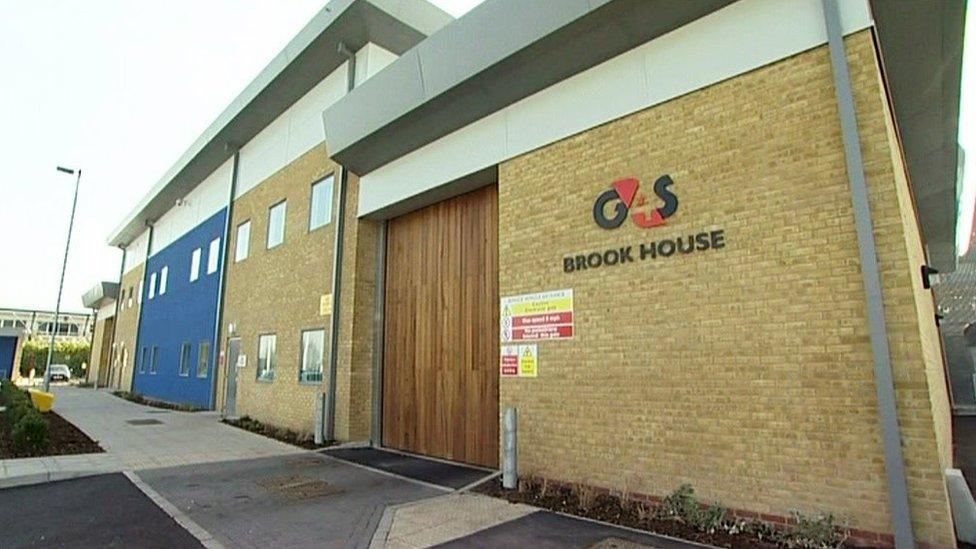Colombian migrant begged to be sent home - but died in UK detention
- Published
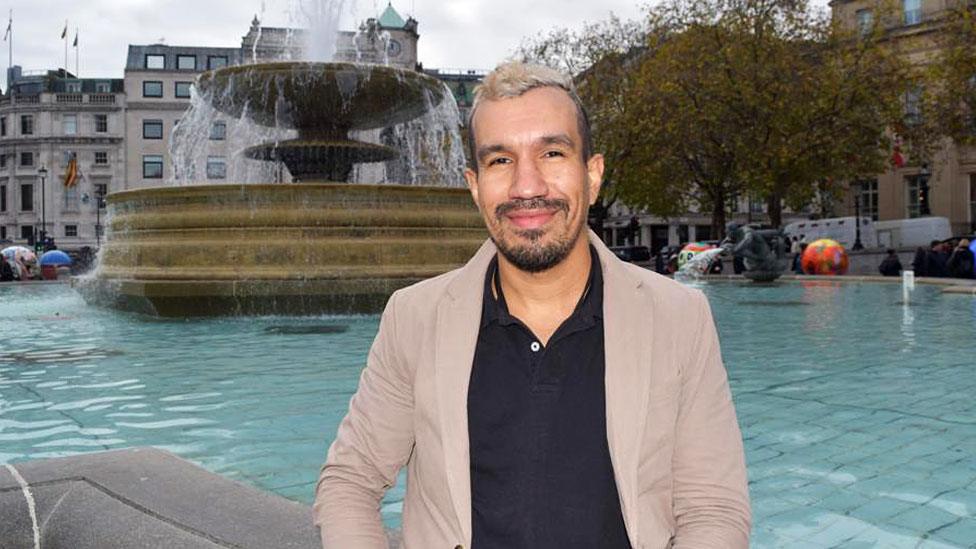
Frank Ospina was detained in the UK in March - he died in an immigration centre later that month
The family of a Colombian man who is believed to have killed himself at a Heathrow immigration removal centre say he begged for help and was willing to leave the UK.
Frank Ospina died within a month of being detained, while he was waiting to be deported. His family say he had no existing mental health problems.
The BBC has been investigating conditions inside immigration centres, at a time when the government is taking a harder line on migrants. Documents shared with us show mounting strain on detainees.
We have also uncovered new details about an incident in which a group of detainees tried to kill themselves in the days following Mr Ospina's death.
It comes ahead of the publication of a report, due next week, into abusive behaviour by staff at the Brook House facility, a centre near Gatwick. A public inquiry was launched following a landmark undercover BBC Panorama investigation, in 2017.
Warning: This article contains discussion of suicide

Immigration removal centres are facilities where people refused the right to stay in the UK can be held, together with foreign nationals who have served prison sentences and are awaiting deportation. Detainees who are refused bail remain locked up until they can be put on a plane to leave the country.
The BBC has been given internal documents from inside the immigration system obtained by two organisations, the human rights journalism unit Liberty Investigates, and the charity, Medical Justice.
The documents suggest there is growing frustration among those being held at immigration centres because of delays to the resolution of their cases, which are in turn having a negative impact on detainees' mental health.
Frank Ospina, 39, a Colombian engineering graduate, came to the UK in late 2022 to visit his mother, who had settled here, and to visit prospective universities.
Having decided to instead enrol on a master's course in Spain, which was due to begin in May, his family say he took a short-term job washing dishes. But as a foreign national Mr Ospina did not have the right to work in the UK.
He was arrested in an immigration raid, and taken to the Heathrow detention centres.
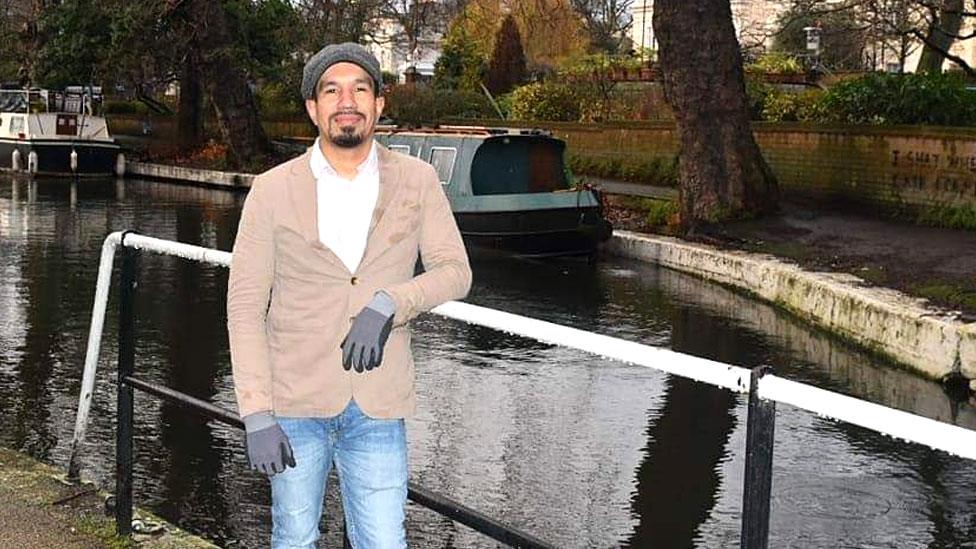
Frank Ospina was arrested after taking temporary catering work while visiting his mother in the UK - after he was detained his family say his mental health went downhill rapidly.
Following his detention on 3 March this year, his mental health deteriorated rapidly, according to his sister, Tatiana Rios Ospina, and brother-in-law, Julian Llano, who live in Chile.
"My brother was a civil engineer who graduated from the best public university in Colombia," Ms Rios Ospina told the BBC. "He was hard-working and very intelligent. They took him to the limit of sanity."
"He kept insisting that he felt very bad, mentally, that he needed to get out of there," Mr Llano says. "He didn't ask for help - he begged for help, not only to us, but also to the people there."

Immigration detention centres
They are prison-style facilities where the government holds asylum seekers and other migrants to establish their identity while they process immigration claims, or organise their removal
Foreign national prisoners who have served UK prison sentences and are awaiting removal from the country are also held here
All detainees remain locked up until they can be put on a plane to leave the country, though they are able to apply for bail
The UK has no maximum limit on the length of time someone can be detained - the only exception is pregnant women who must be released after 72 hours
The UK has one of the biggest detention estates in Europe

After two weeks, Mr Ospina's mother visited. She found him struggling to communicate, and in a "weak mental state". Ms Rios Ospina also called her brother, who was allowed a phone. He was "weird" and unable to finish sentences, she says.
On 21 March, Mr Ospina called the charity Bail for Immigration Detainees. The adviser who spoke to him says he was prepared to be removed from the UK under a voluntary return scheme and was not trying to avoid deportation.
But he was not deported.
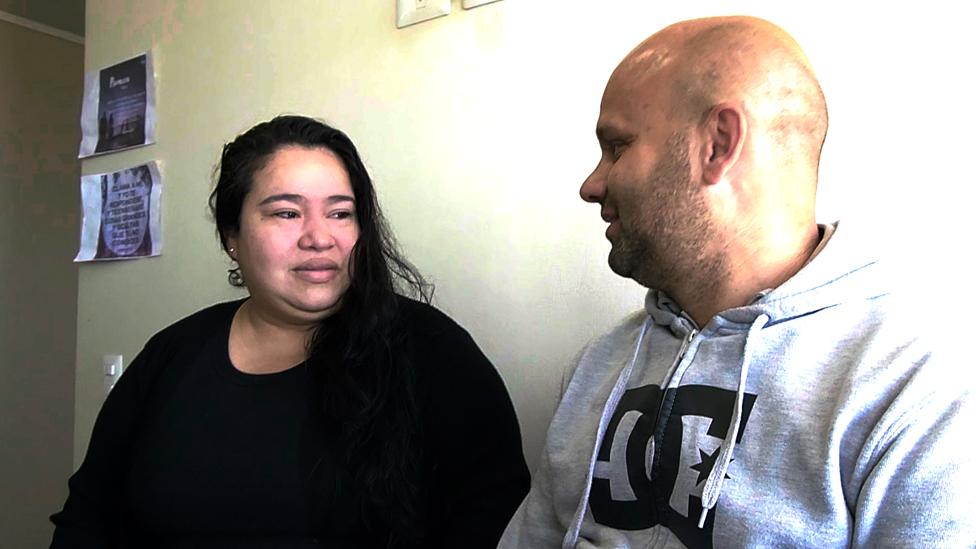
Tatiana and Julian are bewildered by Frank's death in a UK immigration removal centre - but they are sure he wasn't an asylum seeker.
He was put on "constant watch", his family say, in a cell with a window at the Colnbrook Immigration Removal Centre, one of two at Heathrow Airport.
When a desperately worried Ms Rios Ospina called again, she begged her brother to think of his family and of what he had to lose.
The family received the devastating news that Mr Ospina had died during the night of 25 March. His mother was later told this was his second attempt at suicide.
"They put pressure on him by saying he was going to stay there, while Frank was asking to be released," Mr Llano says. "He said he could pay his ticket out - we could pay - but they said he would stay there for months."
A Home Office spokesman said: "Our thoughts and condolences are with the family and friends of Mr Ospina.
"The welfare of all those in our care is of the utmost importance. Any death in immigration detention is a tragic event and will be subject to investigation by the police, the coroner, and the independent Prisons and Probation Ombudsman."
It will be for the coroner to establish how Mr Ospina died.

On 26 March, detainees at Heathrow were informed of Mr Ospina's death by a flyer slipped under the doors of their rooms. Two days later, at around 10.30am, a protest began.
BBC News has been given internal "use of force" statements, made by custody officers working at the Harmondsworth centre on 28 March, which describe how between three and six detainees tried to kill themselves simultaneously.
This is how events unfolded according to the officers who dealt with it. We have omitted some details as the statements include descriptions of methods of suicide:
OFFICER A: It was "madness. Residents were tying things to railings and trying to jump."
OFFICER B: "There were about five of them that were attempting to climb over the barriers on level 2."
"All of a sudden another resident put one leg over the barrier. I immediately grabbed him to deter him..."
OFFICER C: At 1040 hrs an "all out station" was announced over the custody officer's radios to attend one wing of the centre.
OFFICER A: "I was placed in a headlock by a resident... A number of hits to my back and head."
OFFICER D: The mood was "highly charged and volatile".
Mitie, the firm contracted by the Home Office to operate the centre, said no detainees made it past safety barriers, or were able to harm themselves.
A detainee who is in close contact with those involved told the BBC it was a "mixture of attempted suicide and protest", in which three or four people were intent on taking their own lives. He believes the chaotic immigration removal system is primarily to blame for levels of stress and unrest in the Heathrow immigration centres.
"The people who want to go, they won't give a ticket to," he says. "The ones who don't want to go, they are trying to deport."
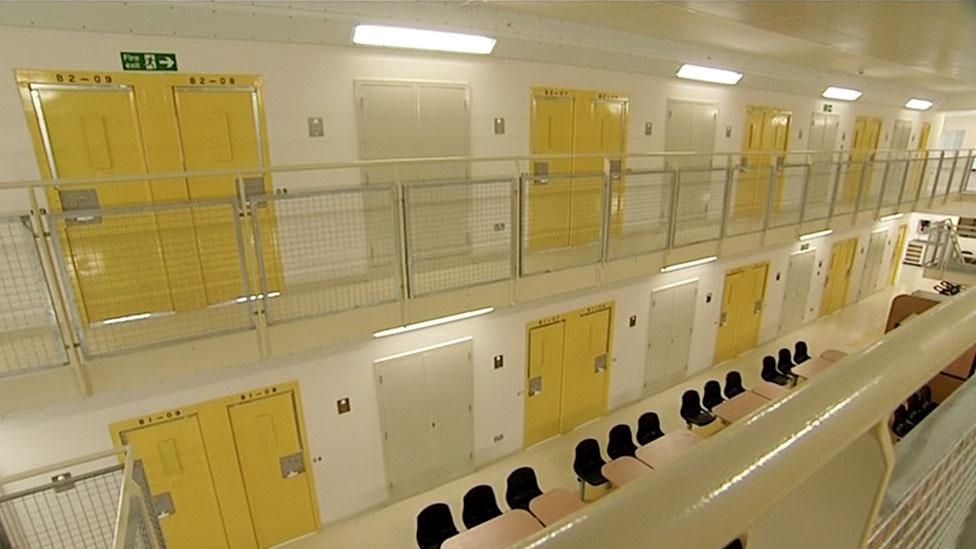
Harmondsworth Immigration Removal Centre is Europe's largest detention facility and can hold up to 676 adult males.
There have been riots, protests and suicides at removal centres for decades, but there is concern among immigration charities that things will get worse. Ministers want to control immigration into the UK, recognising it as a priority for many voters.
New laws will mean more migrants who come from "safe countries" or used "deception" to enter the UK - including on small boats - will be removed automatically. The government insists the UK will "continue to support those in genuine need" by committing to resettle the most vulnerable in the UK.
But the Home Office sees immigration removal centres as essential to tackling illegal immigration and despite guidance that detention should be temporary, the number of people locked up is expected to grow.
The charity Medical Justice has been warning for years that vulnerable people in detention, already potentially traumatised by the places they have escaped, are deteriorating in removal centres. The organisation visits detainees to carry out medical examinations, often in support of applications for them to be released, which are sometimes cited in court.
Medical Justice has given the BBC the results of assessments it carried out on 66 detainees, between June 2022 and March 2023. The assessments found:
64 deteriorated in their mental health while in custody
52 reported they had been tortured before entering the UK
29 said they had been trafficked
13 had attempted suicide, three more than once
Dr Rachel Bingham, from Medical Justice, blamed the "prison-like" atmosphere of detention centres. When responding to mental health concerns, she said staff sometimes use the same techniques as prison officers.
"Put them in a cell, put them with somebody watching them, or frequent intrusive checks which are not by health professionals," Dr Bingham says. "So the process designed to manage distress can actually increase it."
But unlike most prisoners, she says immigration detainees often have no idea when they will be released. "The indefinite nature of detention can result in a crisis in their mental health."
Another former detainee, Ali, not his real name, says he was kept in his cell and handcuffed, even while going to pick up food.
In June 2022, he was one of seven people due to be removed from the UK on the inaugural flight of asylum seekers to be flown to Rwanda. The flight was aborted at the last minute following a ruling by the European Court of Human Rights. Ali now wants to return to France.
In other countries, he says "they will fingerprint you, then they will give you a document asking you to leave the country. Not detain you for months".
He adds: "I haven't seen it anywhere in the world. Yet Great Britain is supposed to be the greatest country in the world."
Mitie said detainees were only restrained if they were at risk of harming themselves, or others, and it didn't believe any were handcuffed for an extended period.
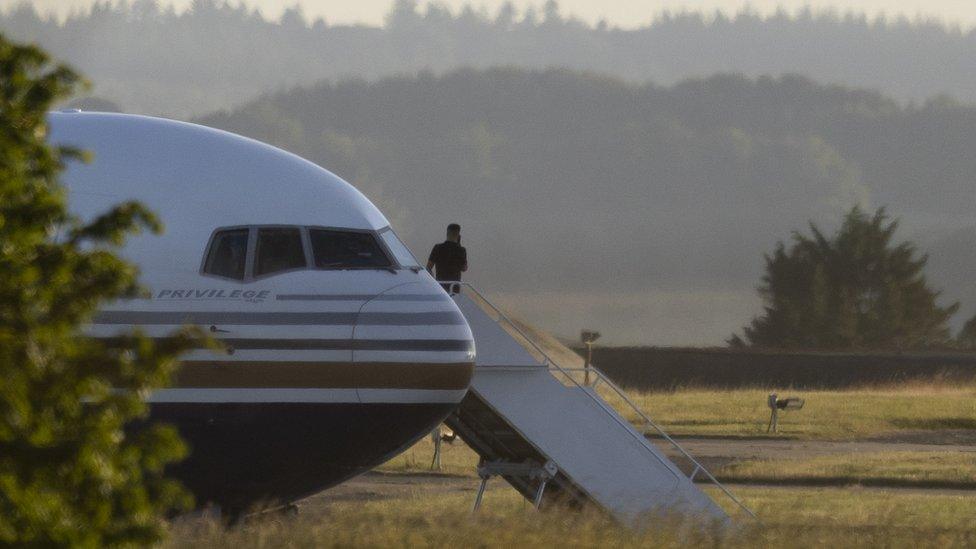
A deportation flight scheduled to take asylum seekers from the UK to Rwanda was grounded at the last minute after intervention from the European Court of Human Rights in June 2022.
Under detention centre Rule 35, staff must complete a report on detainees who are "injuriously affected" by being held, along with those who have suicidal intentions or have been tortured.
That should trigger a review of whether someone should be detained.
Last year, the Home Office warned immigration staff that they should be taking a more proactive approach to filing these reports.
Home Office officials say concerns about mental health can be raised at any point and official statistics suggest that in the last two years the number of Rule 35 reports has increased.
But Medical Justice say that of 66 cases it reviewed, only five had received a Rule 35 report, including just three of the 13 who had attempted suicide.
An inquest, expected in the coming months, will examine the circumstances of Frank Ospina's death. The Prisons and Probation Ombudsman is also investigating.
"Nobody should have to go through this again," Mr Llano says. "There should be a security protocol, when a person who becomes mentally unstable, they should be treated automatically, by suitable people, in suitable centres. Not in detention."
The government has recognised there are increased demands for healthcare at Heathrow and says it is employing more doctors and nurses.
The most detailed examination of the state of detention centres is expected from the report of the Brook House Inquiry, due on 19 September.
If you or someone you know are feeling emotionally distressed, details of organisations offering advice and support can be found on the BBC Action Line website.
- Published18 July 2023
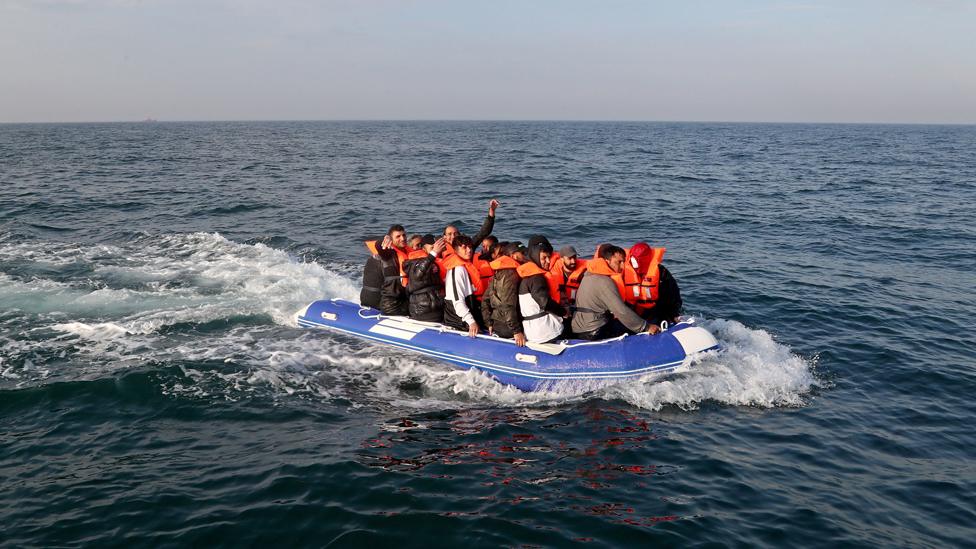
- Published18 July 2023
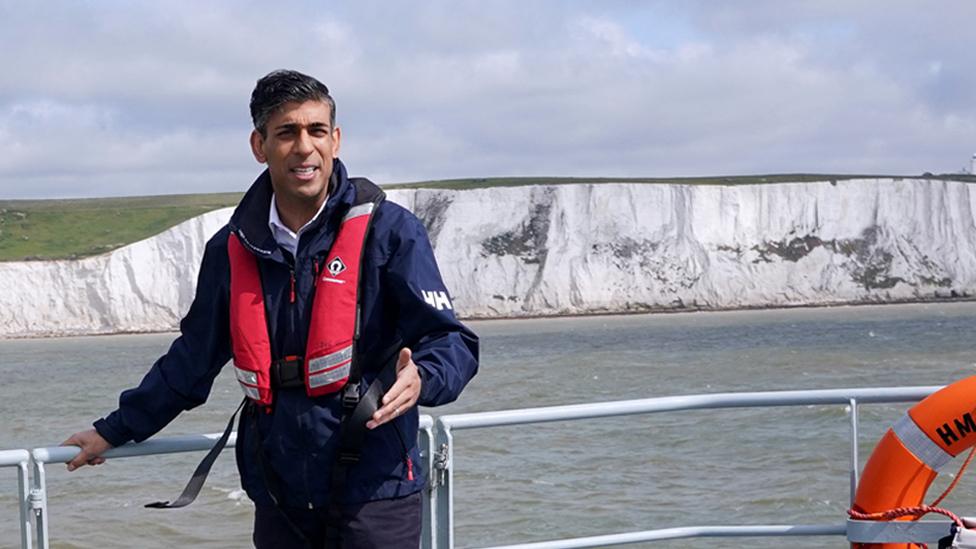
- Published5 April 2022
